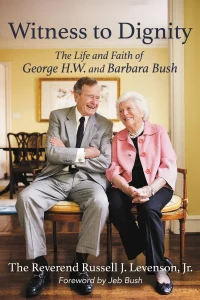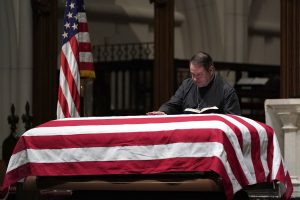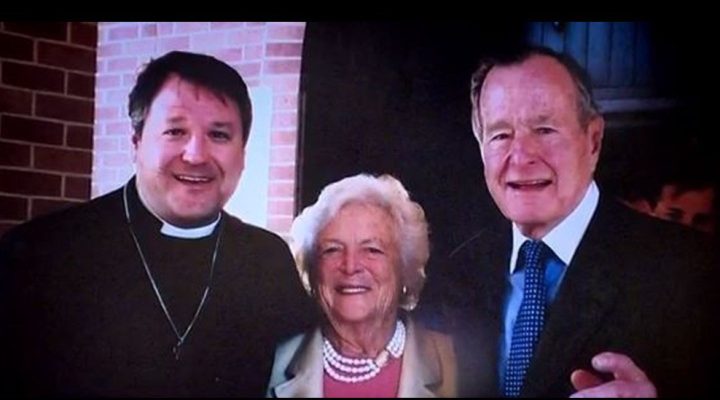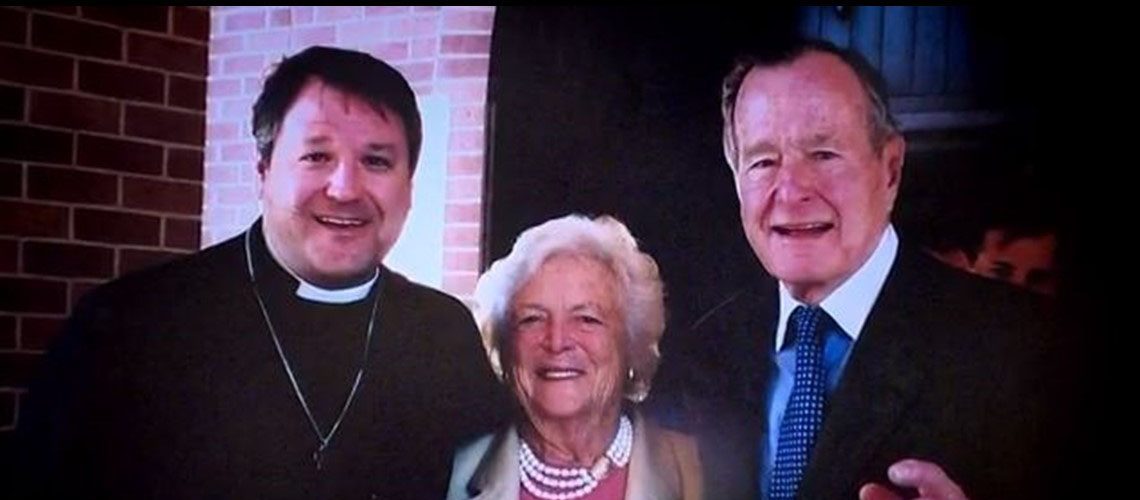Russell Levenson, pastor of Saint Martin’s Episcopal Church in Houston, sees himself as an eyewitness to history as the pastor of former President George H.W. Bush.
Levenson has written a book in which he reflects on the character and kindness of Bush and his wife, Barbara Bush. In Witness to Dignity, Levenson recounts the privilege of witnessing the spiritual journey of the Bushes and seeing what they were like when others weren’t looking.
 Levenson considers himself a redneck from Alabama who somehow found his way to serve one of the largest and most influential Episcopal churches in the nation.
Levenson considers himself a redneck from Alabama who somehow found his way to serve one of the largest and most influential Episcopal churches in the nation.
In addition to serving as pastor to the Bushes, Levenson also had a well-known former Baptist as a mentor: John Claypool, the legendary Baptist and then Episcopal pastor who also served as a professor at Mercer University’s McAfee School of Theology. Their relationship spanned six years until Claypool’s death.
“I loved and cared for John, and he was a mentor,” Levenson explained. “I was actually the last (person) to give him Communion.”
Writing about the Bushes, however, took special care even though both are now deceased. The Houston pastor felt a sense of responsibility to tell their story well. He is pleased that the Bush family has received the book well.
That family approval mattered, but what mattered most to him as a pastor was walking with the former First Family through the latter years of their lives. As he walks down memory lane in telling their story, he especially likes to explain how the Bushes tried always to put others first, even with the many health issues they faced.
“They hardly ever liked to talk about themselves,” Levenson recalled. “So if you walked into their hospital room, you might say, ‘How are you doing?’ They would immediately want to know how my kids were doing or how the church was doing.”
Observations like these offer small but powerful examples of how the Bushes treated others with kindness and dignity, he said.
He also writes of their faith. Levenson wants readers to understand the former president saw his faith as important but never wanted to use it for personal gain or to harm others.

Russell Levenson, rector of St. Martin’s Episcopal Church, says a prayer over the casket of former President George H.W. Bush as he lies in repose on December 5, 2018 in Houston. (Photo by David J. Phillip-Pool/Getty Images)
“He would never use his faith to further his career or his vocation. He became, you know, kind of a James’ disciple of Jesus, where he didn’t just love the Lord with his words, but he did it with his deeds. You know, show me your faith by what you say, and I’ll show you my faith by what I do. He never did use it as a tool to attack others.”
Levenson believes Bush’s faith was tested and confirmed as a 19-year-old young man who almost died in combat. Knowing his life had been spared while two friends died, he routinely asked, “Why me?”
“I think somewhere in the DNA of being brought up in his mother’s lap, she would read to him from the Book of Common Prayer, most of which comes from holy Scripture, and going to church on a regular basis, watching and observing the faithfulness of his parents,” Levenson explained. “When he went down, he did ask that question, ‘Why me?’ And I think that question began to shape who he was and who he would become.”
Bush, like many successful leaders, understood loss and defeat, from losing his daughter Robin to losing his re-election bid. But according to Levenson, he kept his faith front and center.
After losing his re-election bid in 1992, Bush returned to the pew and to service at Saint Martin’s alongside his fellow church members, the pastor said.
“The two hardest moments in his life that he would talk about were Robin’s death and actually losing the election when he ran for the second time. He would say, ‘What got me through that time was family, friends and faith, those three things.’”


